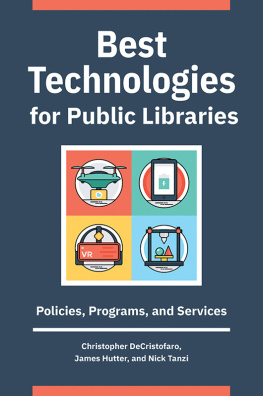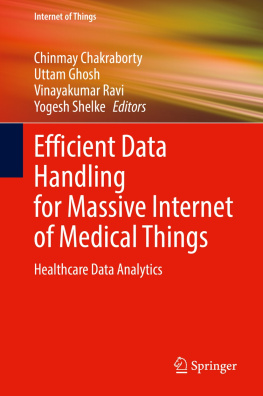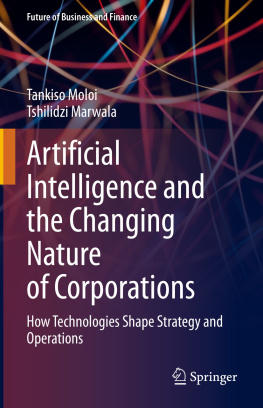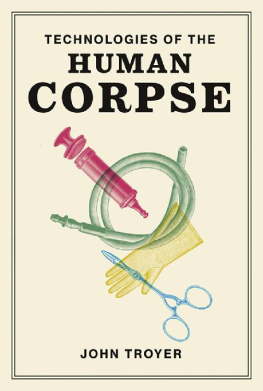
REFRACTING THROUGH TECHNOLOGIES
This book explores the material-discursive entanglement of how we both make the world with our words and how the materiality of the world forces us to put words on it. Beginning with the conundrum of how the things that make up our world are both shaped by and shape the ways in which we talk about, engage with and think about them, the author accepts the entanglement and then works backwards, using the metaphor of refraction to help articulate the structures, values and norms that discursively shape our world and our selves in it. Through a series of empirical examples taken from work on medical technologies and the body, Refracting through Technologies shows how researchers and designers can use material things technologies to refract discourses and articulate the concerns and voices producing them. Refraction as a metaphor is thus revealed to be an important concept, enabling scholars to apply analytical work to political concerns about the technological world. As such, it will appeal to scholars of sociology, science and technology studies, philosophy and design with interests in technoscience, feminist thought and social theory.
Ericka Johnson is Professor of Gender and Society at Linkping University, Sweden. She is the author of Gendering Drugs: Feminist Studies of Pharmaceuticals and Dreaming of a Mail-Order Husband: Russian-American Internet Romance; the co-author of Glocal Pharma: International Brands and the Imagination of Local Masculinity; and the co-editor of Technology and Medical Practice: Blood, Guts and Machines.
ROUTLEDGE RESEARCH IN GENDER AND SOCIETY
80 White Masculinity in Contemporary Australia
The Good Ol Aussie Bloke
Andrea Waling
81 Motherhood in Contemporary International Perspective
Continuity and Change
Edited by Fabienne Portier-Le Cocq
82 Gender Violence in Ecofeminist Perspective
Intersections of Animal Oppression, Patriarchy and Domination of the Earth
Gwen Hunnicutt
83 Reframing Drag
Beyond Subversion and the Status Quo
Kayte Stokoe
84 Rape in the Nordic Countries
Continuity and Change
Edited by Marie Bruvik Heinskou, May-Len Skilbrei and Kari Stefansen
85 Refracting through Technologies
Bodies, Medical Technologies and Norms
Ericka Johnson
For more information about this series, please visit: https://www.routledge.com/sociology/series/SE0271
First published 2020
by Routledge
2 Park Square, Milton Park, Abingdon, Oxon OX14 4RN
and by Routledge
52 Vanderbilt Avenue, New York, NY 10017
Routledge is an imprint of the Taylor & Francis Group, an informa business
2020 Ericka Johnson
The right of Ericka Johnson to be identified as author of this work has been asserted by her in accordance with sections 77 and 78 of the Copyright, Designs and Patents Act 1988.
All rights reserved. No part of this book may be reprinted or reproduced or utilized in any form or by any electronic, mechanical, or other means, now known or hereafter invented, including photocopying and recording, or in any information storage or retrieval system, without permission in writing from the publishers.
Trademark notice: Product or corporate names may be trademarks or registered trademarks, and are used only for identification and explanation without intent to infringe.
British Library Cataloguing-in-Publication Data
A catalogue record for this book is available from the British Library
Library of Congress Cataloging-in-Publication Data
A catalog record has been requested for this book
ISBN: 978-1-138-56418-3 (hbk)
ISBN: 978-1-138-56419-0 (pbk)
ISBN: 978-1-315-12227-4 (ebk)
Academic work can be lonely, or at least solitary, especially in the humanities and social sciences. However, I have been blessed with a research collective that meets regularly, speaks openly, critiques productively and such a rarity reads each others manuscripts with care, in all meanings of the word. Thank you, to the P6 seminar group, and especially to Alma Persson, Boel Berner, Elin Bjrk, Maria Bjrkman, Anna Bredstrm, Jelmer Brggemann, Catelijne Coopmans, Nimmo Elmi, Jenny Gleisner, Hannah Grankvist, Lisa Guntram, Katherine Harrison, Sonja Jerak-Zuiderent, Corinna Kruse, Lotta Bjrklund Larsen, Lisa Lindn, Oscar Maldonado Castaeda, Kristina Trygg, Else Vogel, Steve Woolgar, Kristin Zeiler and Teun Zuiderent-Jerak. And to those colleagues at other universities who have generously read, commented and been in conversation with my ideas, including Helena Cleeve, Per Cornell, Virginia Langum, Nina Lykke, Piotr Maro, Celia Roberts and Gran Sundqvist. Thank you, all!
The manuscript was blessed with the firm and steady editing hand of Pam Bertram, who ironed out the wrinkles of my text. Thank you for using your skills and your attention to detail on my work! And the book itself would not have seen the light of day without the generous interest and support from my commissioning editor, Neil Jordan. Thank you. It is always a pleasure to work with you.
Research in this book has been funded by the European Research Council, under the European Unions Seventh Framework Programme (FP7/2007-2013)/ERC grant agreement no. 263657, PPPHS, and by the Swedish Research Council: New visualization and simulator technologies; Culture, biomedicalization and changing masculinites; Gender and Medical Simulators (grant number 2012-5198); and A Constant Torment. Tracing the Discursive contours of the aging prostate (grant number 2013-8048). I have also benefited from continuing institutional support from The Department of Thematic Studies, Linkping University, Sweden.
Our lives are full of things the material objects of our world. But how we talk about, think of and engage them our discursive practices also determine what these things are to us. That is the conundrum of what we call material-discursive entanglements: we both make the world with our words and the materiality of the world forces us to put words to it. That conundrum has been a topic of theoretical work and shaped research in STS (science and technology studies), feminist technoscience studies and the field of new materialities, among others. It is also a concern for those working with norm-critical design, trying to implement critical theorys commitments on the material world, and finding ways to apply theoretical concerns in design practice. This book starts with that conundrum, accepts the entangled state of the material-discursive, and then works backwards, through the metaphor of refraction, to make visible the actors and structures, their values and norms that are discursively shaping our world and ourselves within it.
Through a series of empirical examples taken from work on medical technologies and the body, I will show how researchers and designers can employ material things technologies to refract discourses and articulate the concerns and voices producing them. Refraction as a metaphor becomes an analytical tool, helping to show and articulate the political of the technological world and the bodies we may inhabit within that world. I use the metaphor to make visible discourses that construct, enable, enrol and enact technologies in specific contexts, discourses which help us (researchers in STS, new materialities, feminist technoscience studies and critical design), see and show what structures, concerns, norms, values and voices are engaging technologies and to what end. It is an analytical method that makes the political of material-discursive entanglements actionable.








